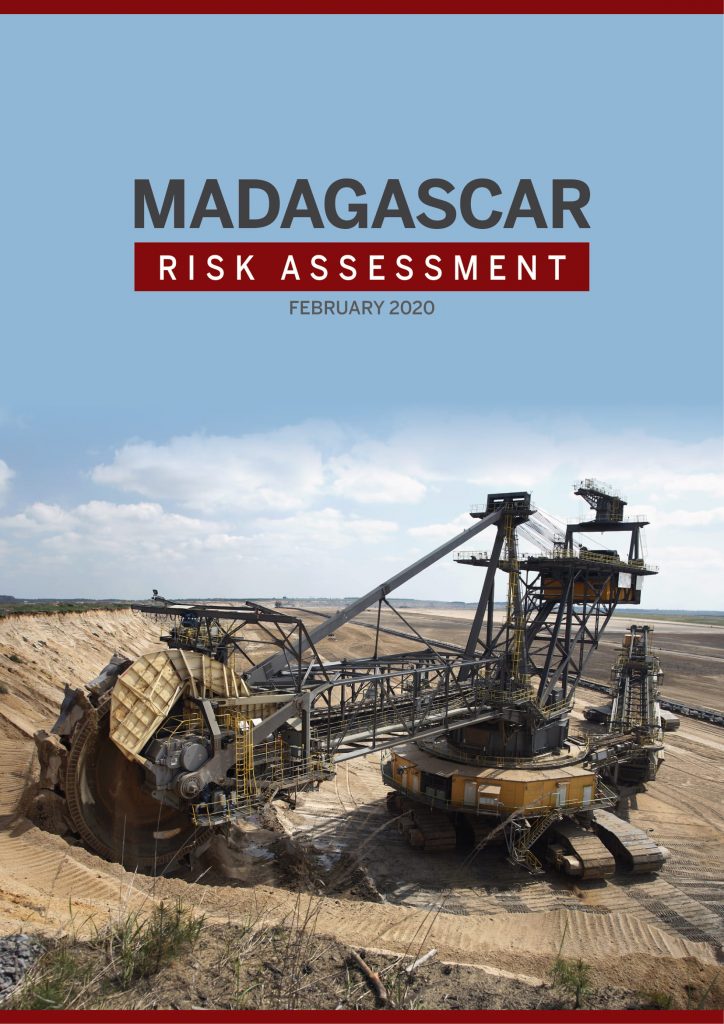
Madagascar risk assessment
This risk assessment of Madagascar takes an in-depth look into the political climate, socio-economic conditions, security, mining sector and infrastructure and logistics capacity of the country to provide a comprehensive, strategic decision-making tool.
Since gaining full independence from France in 1960, Madagascar has experienced repeated bouts of political instability attributable to poor governance, violent unrest and disputed elections, which have fuelled continuous economic pressures. Compounding political pressures, the country’s armed forces have been used as pawns in political power struggles and several successful coup d’états. Notably, the most recent military-backed coup – which saw current President Andry Rajoelina oust former president Marc Ravalomanana in 2009 – led to almost five years of political deadlock, international condemnation and economic sanctions.
February 2020
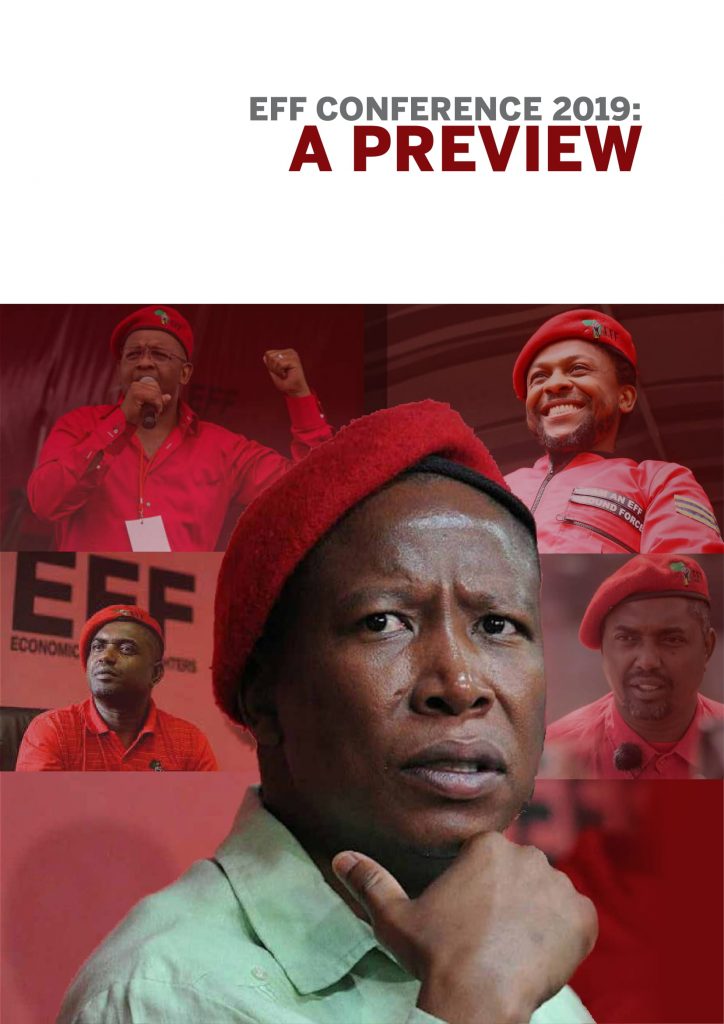
EFF conference 2019: A preview
The Economic Freedom Fighters (EFF) has the long-term goal of winning executive power in South Africa (SA). At its current rate of growth and support base profile, this is unlikely. Accordingly, the party faces the challenge of broadening its appeal while retaining its radical support base. This is unlikely given SA’s general all centrist-conservative electorate.
The elective conference comes at an interesting time for the EFF. The party is now six years old and has contested two national elections and a local government election. It now controls over 10% of the seats in parliament and has become the kingmaker in several municipalities, including Johannesburg, Tshwane (Pretoria), and Nelson Mandela Bay (NMB). However, the party is also struggling to retain control of the national discourse and realign itself and grow in the post-Zuma era. The EFF drew much tacit support from its willingness to be a vocal critic of former president Jacob Zuma and even the party’s disruptive actions in the National Assembly were applauded by various sectors.
However, these disruptive politics are less popular since the inauguration of President Cyril Ramaphosa and the public at large seems to want parliament to return to being a functioning body and is less tolerant of, or excited by, the EFF’s members violently protesting in the legislature.
December 2019
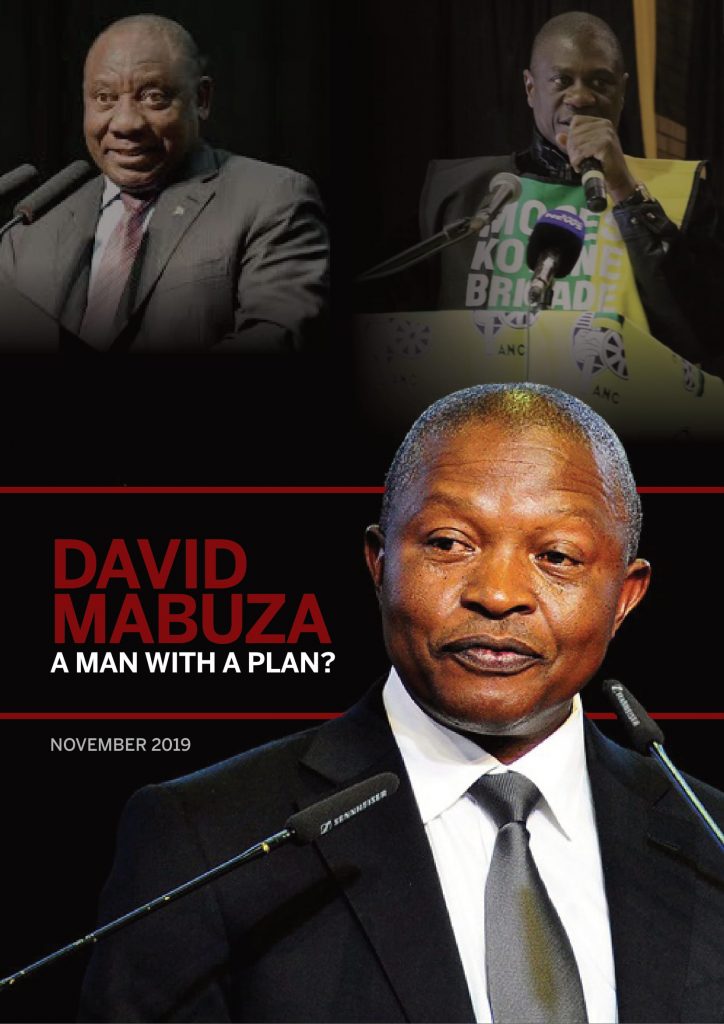
David Mabuza – A man with a plan?
After playing a decisive kingmaker role in the election of President Cyril Rampahosa at the African National Congress (ANC) 54th National Conference at Nasrec in December 2017, both his media presence and some observers suggest that David Mabuza has happily and easily relaxed into his role as Deputy President. Other opinions include that the upwards move to this role from Mpumalanga premier has been a testing one for Mabuza and that struggling to find his feet has been his main preoccupation.
Neither of these interpretations of Mabuza may be incorrect, but both risk paying inadequate attention to Mabuza’s historic behaviours and the seismic shift in the ANC that he in large part helped induce by ensuring a sizeably increased Mpumalanga voting bloc propelled Ramaphosa to power.
November 2019
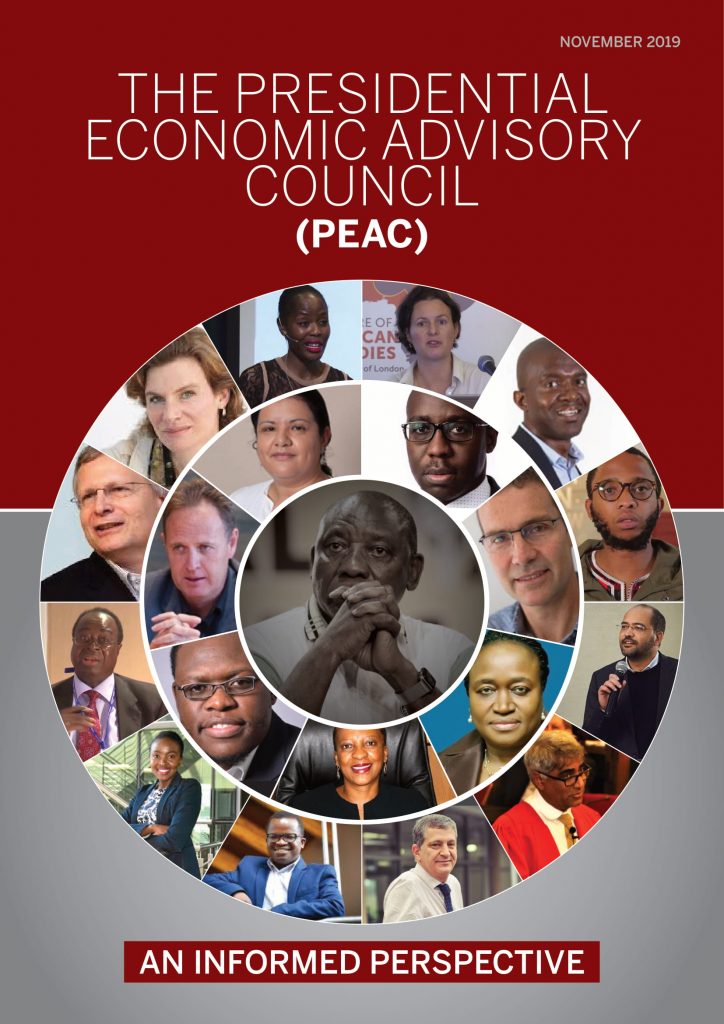
The Presidential Economic Advisory Council (PEAC): An informed perspective
On 27 September 2019, President Cyril Ramaphosa announced the formation of the Presidential Economic Advisory Council (PEAC). The council was mandated with advising the President and helping ensure greater coherence, consistency, and implementation of government’s economic policy.
The PEAC, chaired by Ramaphosa, is considered an independent body on which members serve voluntarily. These individuals include local and international experts, primarily economists and political economists, drawn from the public and private sectors as well as from academia, think tanks, and labour organisations.
November 2019
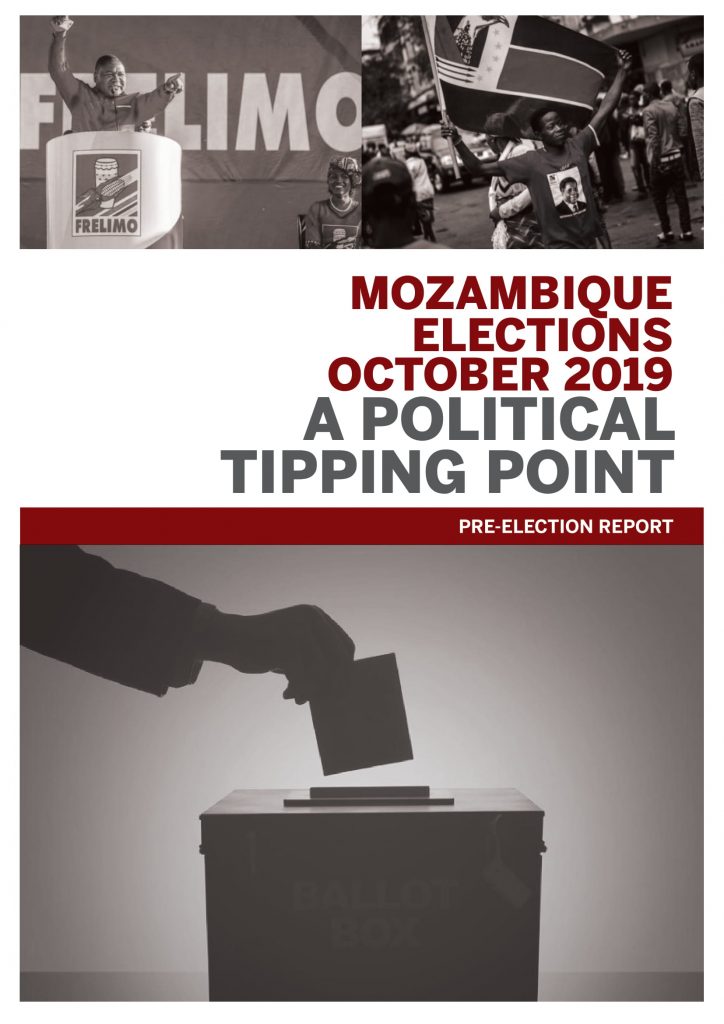
Mozambique elections October 2019: A political tipping point
Mozambique held its national general election on 15 October 2019 in what was touted as one of the most significant votes in the country’s democratic history. This was due to the fact that it was the first national election to take place under the new decentralised system, meaning that the opposition could potentially win executive control of provincial governments. Previously, provincial governors were appointed by the central government. This new decentralised process was agreed to as part of the peace accords between RENAMO and the FRELIMO-led government and the successful legitimate holding of the election was a cornerstone of these accords and necessary to ensure a lasting peace. Both RENAMO and FRELIMO were under significant international pressure to participate in the elections and accept the result.
October 2019

The Huawei problem: An SA perspective
This report is intended to provide a broad overview of Huawei’s past, current and future activities and intentions in the South African operating environment specifically.
June 2019
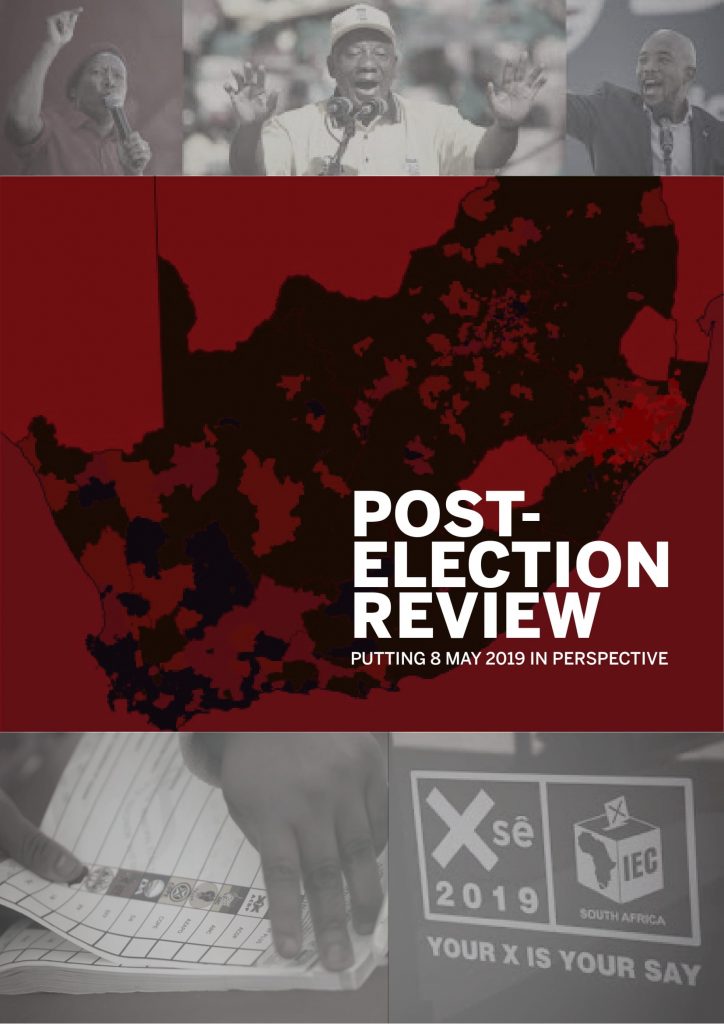
The post-election review: Putting 8 May 2019 in perspective
This Post-Election Review (PER) aims to give a concise and thorough overview of the results of South Africa’s 8 May 2019 national general elections.
It examines the national and provincial results experienced by each of the three major parties, namely the African National Congress (ANC), the Democratic Alliance (DA) and the Economic Freedom Fighters (EFF).
May 2019
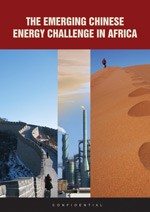
The emerging Chinese energy challenge in Africa
This report tracks the reasons behind China&rsquos successful rise in Africa&rsquos energy sector, once almost the exclusive preserve of Western oil companies. In the short space of six years the Chinese oil presence in Africa has gone from one isolated outpost to a spread that covers nearly half the continent. The People&rsquos Republic of China (PRC) has embarked on an aggressive campaign to capture large parts of the African oil and gas sector. Facing accelerated oil imports by the turn of the 21st century, Chinese policymakers made a strategic decision to diversify and secure energy supplies across the globe, accentuated by the 9-11 crisis which starkly highlighted China&rsquos mismatched reliance on unstable Middle East oil supplies. A&ldquogo out and buy&rdquo strategy has seen Chinese oil companies move into Africa, Central Asia and South America to secure new energy oil supplies.
August 2016
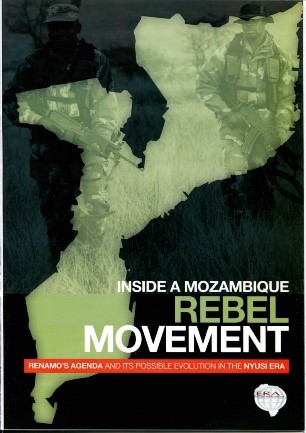
Inside a Mozambique rebel movement
As Mozambique stands on the precipice of an economic boom, Renamo is the proverbial political time bomb that could see new President Filipe Nyusi’s visions of prosperity, driven by an open and inclusive government, implode. Managing Renamo, and the potential myriad of threats and opportunities it presents, will be vital for both government and any stakeholders that need to navigate and operate in the Mozambican political and economic landscape in the short to medium term. Relationships and risk mitigation strategies will be vital, understating Renamo as it stands, and on an ongoing basis, will be a necessary competitive edge.
July 2015
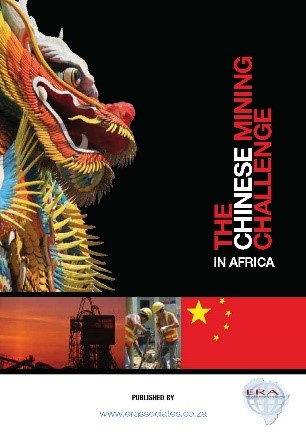
Chinese mining challenge in Africa
China’s entry into Africa’s natural resource market may be late, but it is certainly no less dramatic. Since the emergence of a “go out and buy” strategy in the early 2000s, China’s mining footprint has grown rapidly, and possibly even alarmingly for those wanting to do business in the extraction industry. To understand the impact of the trends underpinning Chinese advancement on the continent, ERA has compiled a “Chinese Mining Challenge in Africa.” The report will give readers a solid foundation in Chinese actions and methods on the African continent by addressing the following topics:
China’s Resource Demand-driven Policy
The Chinese Mining Decision-making Process
China’s Africa Mining Footprint
The Role of Chinese Security Services in Securing Resources
The African View on China
2013
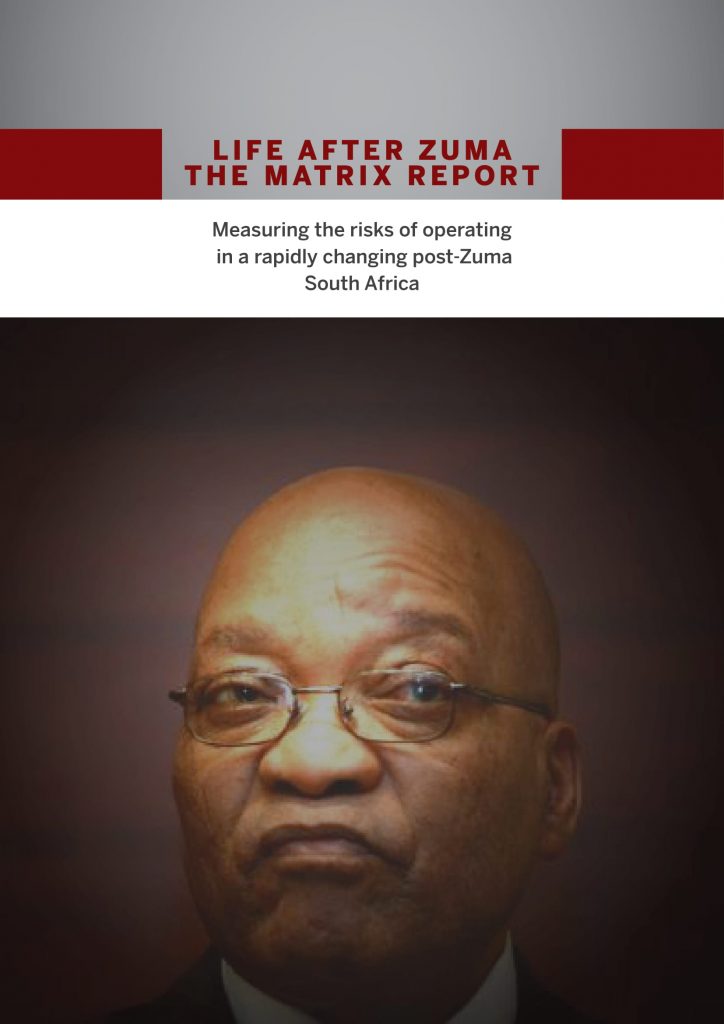
Life after Zuma – The matrix report
Measuring the risks of operating in a rapidly changing post-Zuma South Africa.
After winning the Presidency of the African National Congress (ANC) at its 2017 National Conference in Nasrec, Johannesburg, President Cyril Ramaphosa then ascended to the Presidency of South Africa (SA) in February 2018 after former president Jacob Zuma was persuaded to step down.
The months preceding his election as ANC and SA President and the intervening period have been dominated by factional infighting in the ANC with two main camps battling for dominance of policy, structures and the associated benefits and vested interests.
August 2016
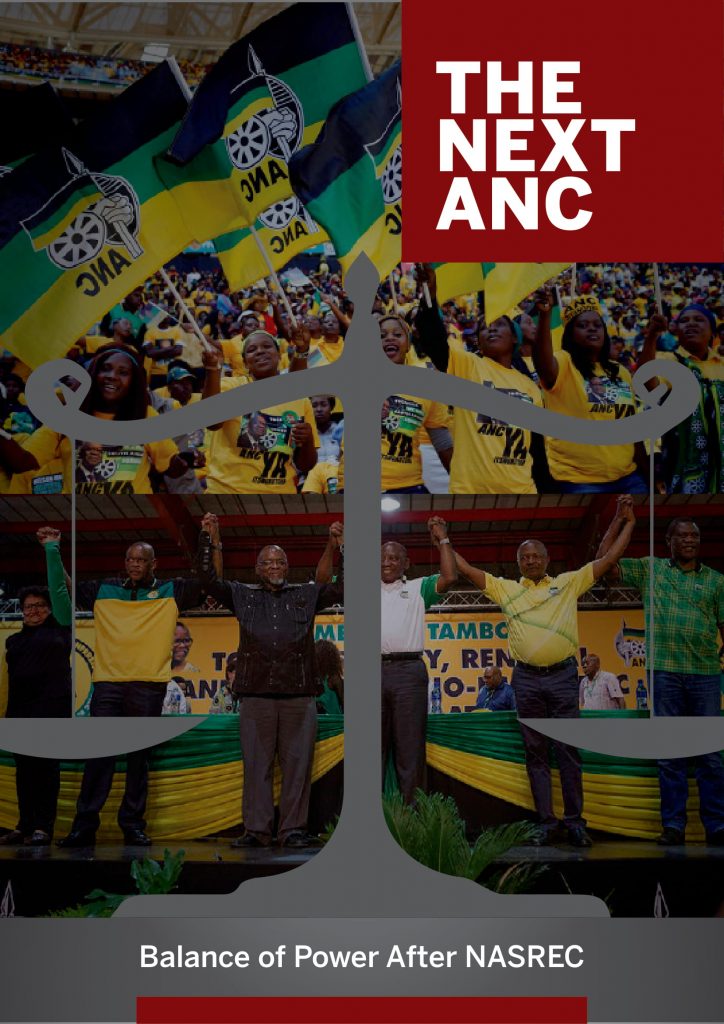
The next ANC
The African National Congress (ANC) 54th National Conference held at Nasrec in December 2017 was a much-awaited route marker in the ANC’s political evolution, marking the official end of the former president Jacob Zuma administration and the introduction of a new one led by President Cyril Ramaphosa.
The Nasrec elective process was the culmination of an often-volatile succession battle that dominated the preceding year with two increasingly tangible factions ‒ aligned with Ramaphosa and perceived Zuma proxy Nkosazana Dlamini-Zuma (NDZ) respectively. The outcome was largely perceived as a narrow political victory for the Ramaphosa slate, projected as the embodiment of change; with little doubt that the NDZ camp would continue to exert considerable influence over the party as it sustained a substantial presence in the leadership.
August 2018
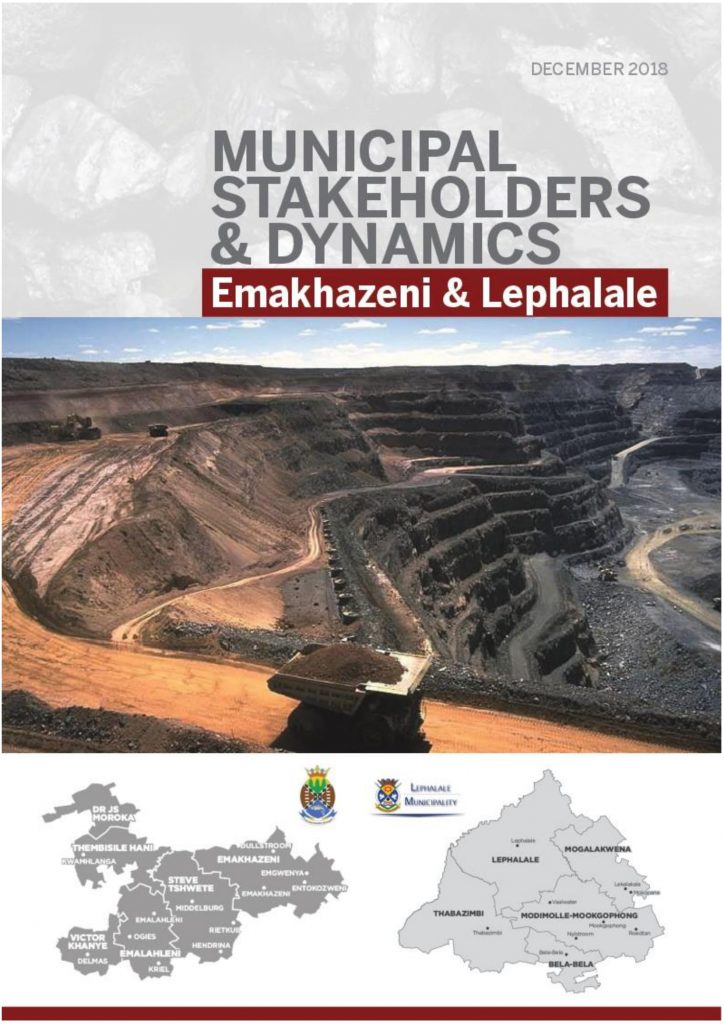
Municipal stakeholders and dynamics: Emakhazeni and Lephalale
This study was motivated by observations that the mining sector appears to be in a permanent state of crisis with community and worker driven unrest and protests impacting significantly on operations, safety and overall stability. The Limpopo and Mpumalanga provinces are among the most severely affected with a proliferation of mining forums emerging, all intent on using coercion and intimidation to force companies to meet their demands.
December 2018
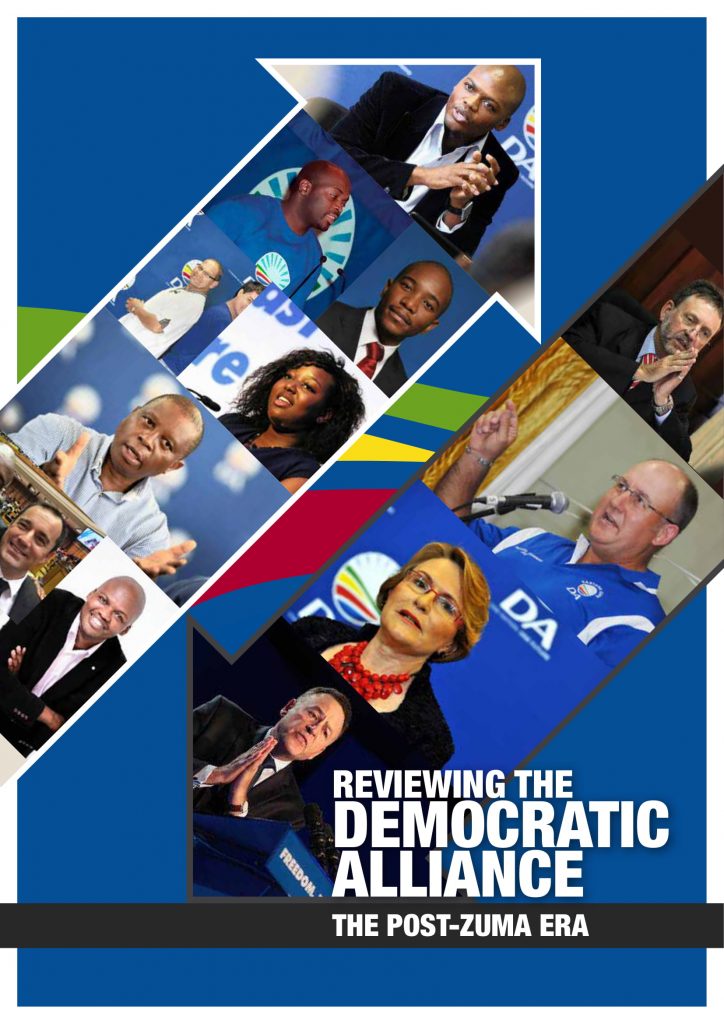
Reviewing the Democratic Alliance:
The post-Zuma era
As the African National Congress (ANC) has seen its percentage of the vote gradually eroded from 69.7% in 2004 national elections to 62.1% in 2014 and 53.91% in 2016 municipal polls, there has been little doubt that former president Jacob Zuma’s tenure took a hefty toll on the party’s support. At the same time the Democratic Alliance (DA) has increased its stature, support and reach, growing its votes from 2009’s 16.7% to 22.2% in 2014; and even further to 26.90% in 2016 municipal elections, in which it made massive strides in breaking the ANC’s hold on the country’s metros.
In this context, the DA’s character as an opposition party has been largely defined and interpreted in relation to the ANC and its leadership under Zuma, which has seen it premise a substantial part of its political agenda on opposition to the negative impacts of the Zuma era, such as corruption and state capture. It has also had to deal with the emergence of the Economic Freedom Fighters (EFF) as an opposition foe that will do little to boost the DA’s somewhat unsuccessful efforts to appeal to broad black support. Hence, for much of the past decade the DA has been defined in relative terms correlating to the failure of the ANC under Zuma, alongside its own established success as a governing party in the Western Cape and, more recently its still unfolding efforts to manage the Johannesburg, Tshwane and Nelson Mandela Bay metros in precarious coalition governments.
April 2018
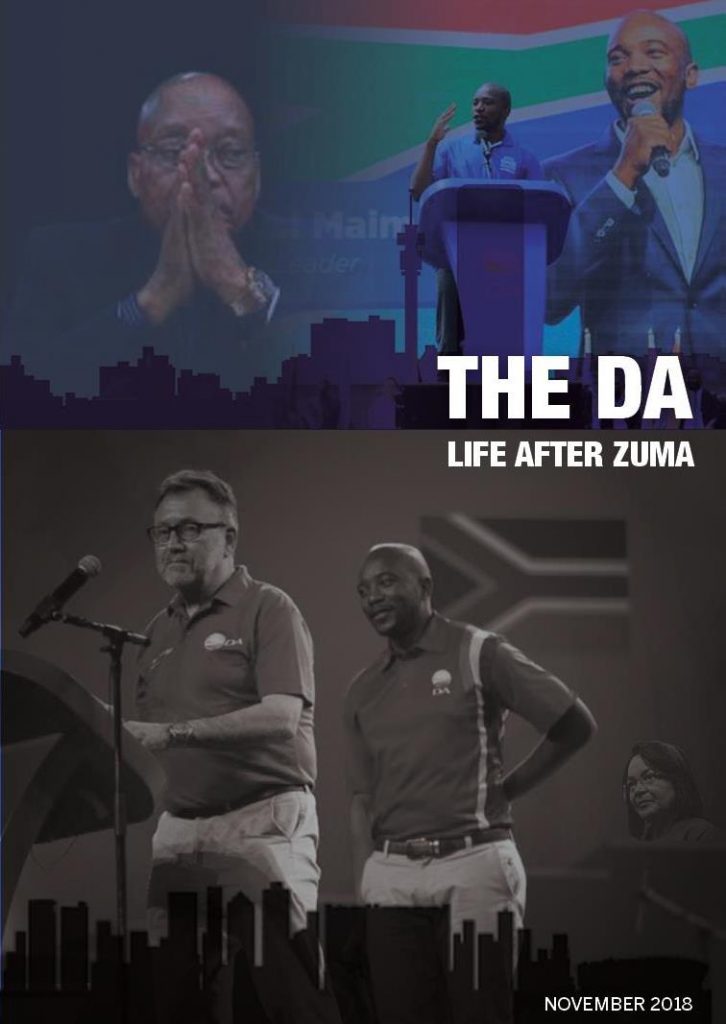
The DA: Life after Zuma
The Democratic Alliance (DA) has had a tumultuous 2018 rocked by factional infighting and the loss of one of its recently gained metropolitan municipalities. This reflects a marked downturn in sentiment since the party’s unexpectedly good 2016 when it gained control of three new metropolitan municipalities in local government elections and signalled a serious warning to the ruling African National Congress (ANC) that it was a notable election threat in Gauteng.
The DA’s difficult 2018 kicked into high gear on 14 February 2018 when former president Jacob Zuma resigned from the presidency after his own party, the ANC, threatened to forcibly remove him via an act of parliament.
Ironically, this is what the DA had purportedly wanted to happen for nearly a decade, however, the rapid removal of Zuma in many ways threw the party into an existential dilemma. The DA had invested so much of its political messaging and identity into opposing Zuma as a president and a person, that it had defined itself in terms of this opposition. The party also found that Zuma made an excellent recruitment and campaign tool driving undecided and frustrated ANC voters to the DA at election time.
April 2018
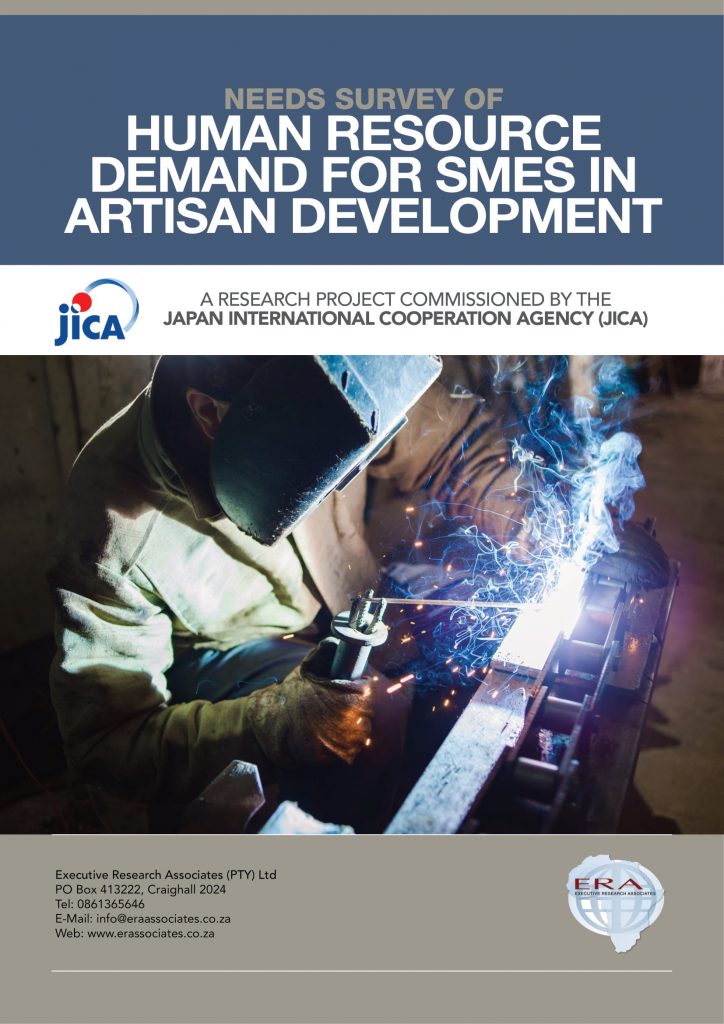
Needs survey of human resource demand for SMEs in artisan development
In June 2017, the Japan International Cooperation Agency (JICA) commissioned Executive Research Associates (ERA) to conduct a study of the human resource demand for small and medium enterprises (SMEs) in artisan development. The objective of the study was to identify the human resource needs, particularly in relation to artisans, in the manufacturing sector.
August 2017
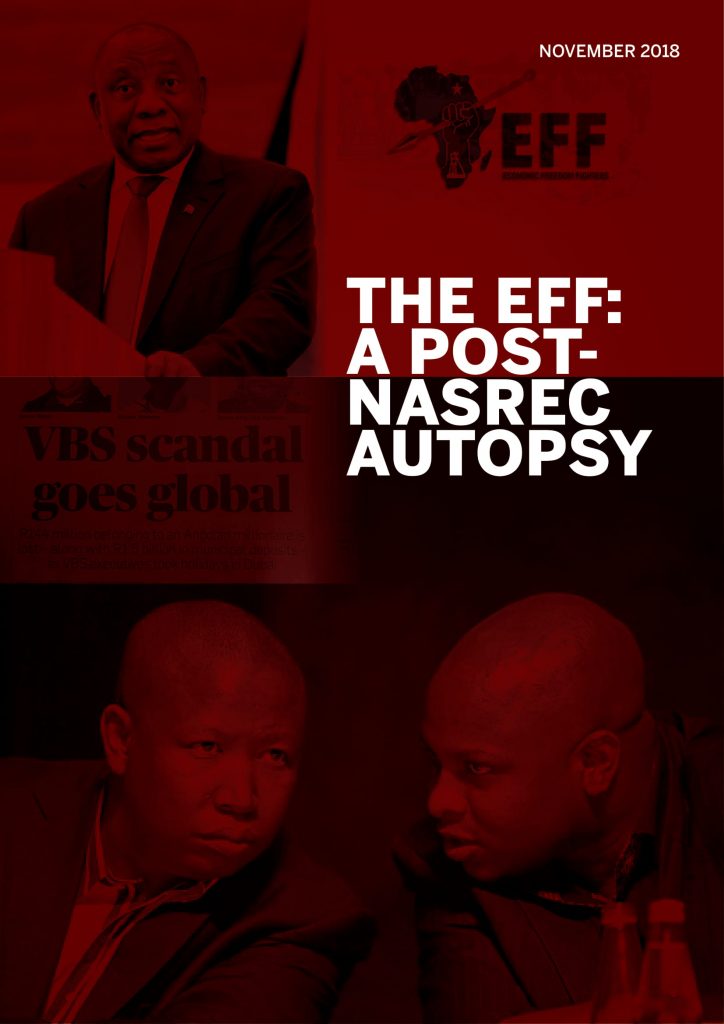
The EFF: The post-Nasrec autopsy
In its early days the Economic Freedom Fighters (EFF) elicited both awe and fear as observers, and especially those on the right, regarded it with a mixture of ridicule and apprehension, with many dismissing the party as a reactionary band of troublemakers that would not be able to sustain a political footprint.
This report aims to assess the Economic Freedom Fighters (EFF) in order to understand their in the post-Nasrec political environment.
November 2018
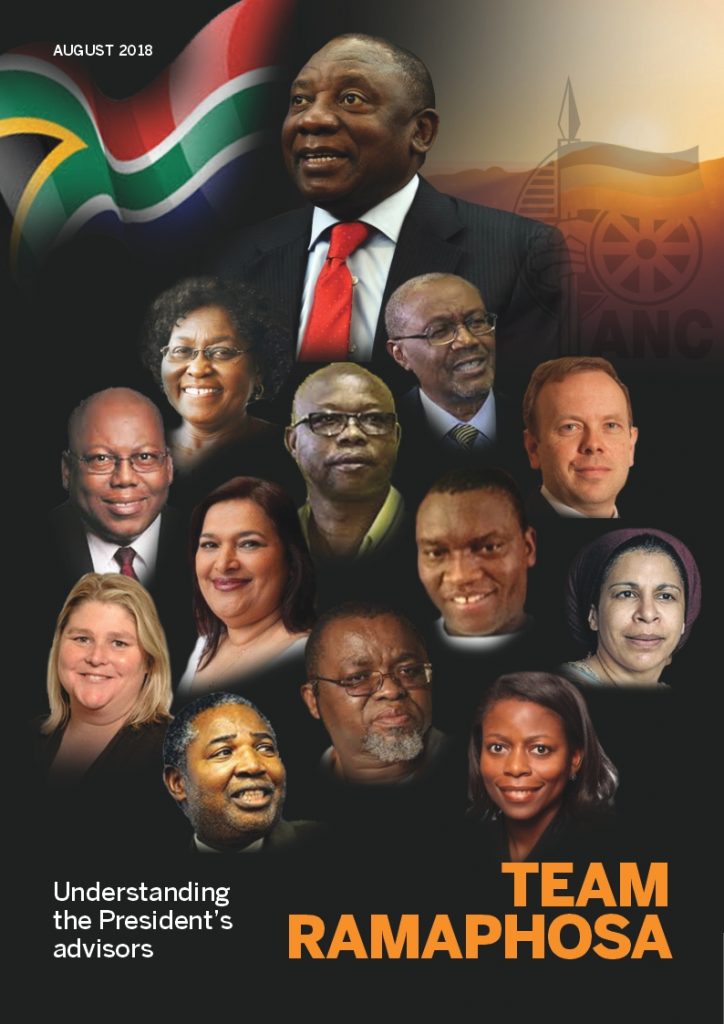
Team Ramaphosa: Understanding the President’s advisors
With very few Zuma appointees left in the Presidency, Ramaphosa, not surprisingly, continues to rely heavily on the personnel that served him as deputy president. This report focuses on understanding the key players in his inner circle.
August 2018
